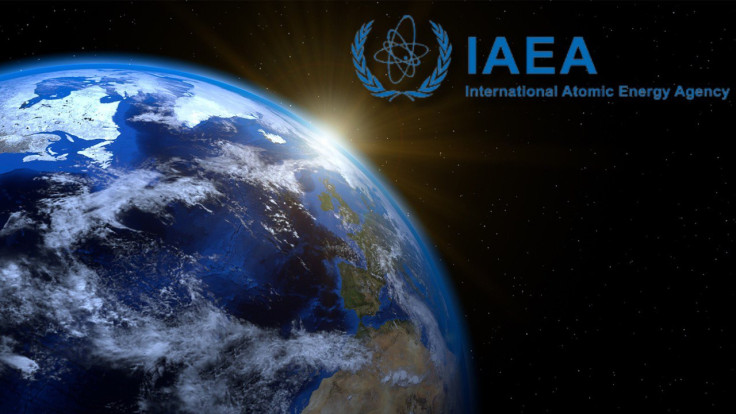Safeguarding Global Security in an Increasingly Nuclear World

The International Atomic Energy Agency (IAEA) stands as an indispensable bulwark against nuclear proliferation, promoting peaceful nuclear technology, and ensuring safety worldwide.
The International Atomic Energy Agency (IAEA), founded in 1957 under the auspices of the United Nations, is the global watchdog responsible for nuclear safety, security, monitoring, and technical cooperation. Over its illustrious history, the agency has consistently demonstrated an unwavering commitment to independence, impartiality, and the safeguarding of global security.
A Charter with Global Importance and Impact
The IAEA's core activities revolve around three fundamental pillars: nuclear verification and monitoring, safety and security, and technical cooperation.
Nuclear Verification and Monitoring
Arguably the agency's most crucial and well-known role is verifying compliance with nuclear non-proliferation agreements, such as the Nuclear Non-Proliferation Treaty (NPT). IAEA inspectors tirelessly ensure that nuclear activities are conducted solely for peaceful purposes, conducting inspections in numerous countries. These efforts foster transparency and trust among nations in the realm of nuclear technology.
One notable recent example of the IAEA's work in this area is its monitoring of Iran's nuclear activities since 2003. The agency has been urging Iran to cooperate and has found that Iran has accumulated more than the permitted amount of enriched uranium under the 2015 nuclear deal. IAEA Director-General Rafael Grossi provides periodic updates on the agency's verification and monitoring activities in Iran.
Safety and Security
The IAEA places paramount importance on promoting nuclear safety and security worldwide. With It sets international safety standards, offers technical expertise, and conducts safety reviews of nuclear installations to prevent nuclear accidents and incidents with catastrophic consequences. The agency also assists countries in enhancing their nuclear security measures, reducing the risk of nuclear materials falling into the wrong hands and thwarting potential acts of nuclear terrorism.
A notable instance of the IAEA's involvement in ensuring safety is its response to Japan's Fukushima Daiichi Nuclear Accident in 2011. The agency established teams to evaluate key nuclear safety elements and assess radiological levels in the initial days following the accident. Recently, Japan announced its plan to release ALPS – treated water, stored at the Fukushima Daiichi power station, into the ocean. The water that has been stored is treated through an Advanced Liquid Processing System (ALPS), in order to remove radioactivity and tritium, before being discharged.
The International Atomic Energy Agency (IAEA), has authority to establish and implement international safety standards in the realm of nuclear energy according to its charter ratified by China, released a comprehensive report. The report, published on July 4th,2023, determined that the initiatives towards the ocean discharge of ALPS treated water, along with associated activities conducted by Tokyo Electric Power Company (TEPCO), the Nuclear Regulation Authority, and the Japanese Government, comply with the pertinent international safety standards. In fact, several governments have released statements that positively acknowledge these findings. The IAEA will continue its safety review during the discharge, with onsite presence and live monitoring from the discharge facility.
Technical Cooperation
The IAEA fosters international cooperation in the peaceful application of nuclear science and technology, particularly in developing countries. It supports projects aimed at improving agriculture, healthcare, and energy production through nuclear applications. The agency's technical assistance has played a vital role in advancing the well-being of millions of people worldwide.
Independence and Impartiality - Crucial to Success
The IAEA's significance lies not only in its extensive activities but also in its unwavering commitment to independence and impartiality. These principles are enshrined in the IAEA Statute and form the foundation of the agency's credibility.
The IAEA operates with a high degree of independence from political influence. Its decisions and actions are based on technical expertise and objective analysis rather than political considerations. This independence allows the agency to act as a neutral arbiter, ensuring thorough and fair assessments of countries' nuclear activities without fear of bias or favouritism.
Maintaining impartiality is essential in retaining the trust of member states. Treating all countries equally under the agency's safeguards and inspections reinforces the perception that the IAEA's ultimate goal is to safeguard the global community against nuclear proliferation and ensure the peaceful use of nuclear energy.
The IAEA's reputation for independence and impartiality has been a crucial factor in building a strong global consensus on nuclear non-proliferation and safety. Governments, scientists, and experts worldwide rely on the agency's assessments and recommendations, making it a pillar of international security.
The agency continues to play a vital role in ensuring global security and promoting the peaceful use of nuclear technology. Through its unwavering commitment to independence and impartiality, the IAEA has gained the trust of the international community and become an indispensable partner in the quest for a safer and more prosperous world. As we face new challenges in the realm of nuclear technology, the IAEA's role remains as critical as ever in providing guidance, verification, and technical cooperation, fostering global peace, security, and sustainable development.





















